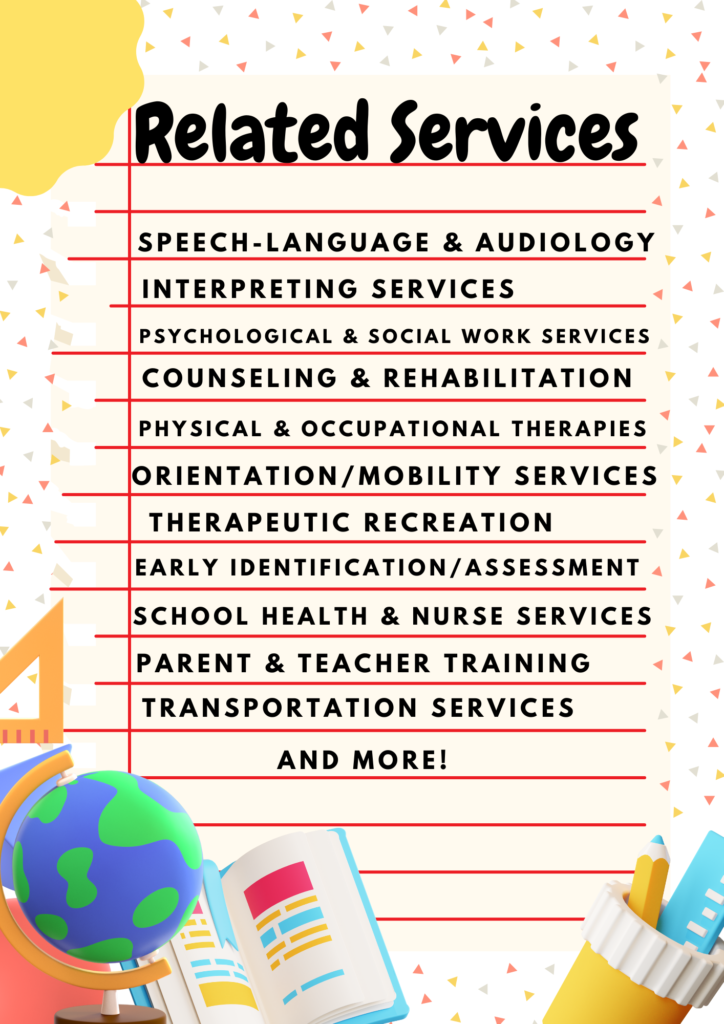 Related services can help your child reach their full potential while supporting them in the school setting. These related services are an essential part of the education support system, providing developmental and supportive assistance to children with disabilities, further allowing them to receive a free and appropriate public education (FAPE) in their least restrictive environment.
Related services can help your child reach their full potential while supporting them in the school setting. These related services are an essential part of the education support system, providing developmental and supportive assistance to children with disabilities, further allowing them to receive a free and appropriate public education (FAPE) in their least restrictive environment.
Related services encompass a wide range of specialized support that children may require to achieve their educational goals. These services are tailored to meet the unique needs of each individual child. The Individuals with Disabilities Education Act (IDEA) outlines these related services, including but not limited to:
- Speech-language and audiology services
- Interpreting services
- Psychological services & social work services (in school)
- Counseling services and rehabilitation counseling
- Physical therapy, occupational therapy, orientation/mobility services
- Recreation and therapeutic recreation
- Early identification and assessment of disabilities in children
- School health and school nurse services
- Medical services for diagnostic or evaluation purposes
- Parent and teacher training
- Transportation services
An IEP is an essential document that outlines the specific educational plan for your child with disabilities. When it comes to related services, the IEP should provide detailed information on the frequency, duration, location, and projected dates for each service. This includes:
- The start date of the related service
- How frequently the child will receive the service (ex: number of times per day or week)
- The location of where the related service will be provided (ex: general education classroom, special education resource room, sensory room, etc)
The frequency and duration of related services should be specified and not stated as a range. This level of specificity helps ensure that your child receives the appropriate support they need. For example, if your child requires physical therapy twice a week, make sure the IEP states the specific days of the week, avoiding vague terms like “per school calendar.”
As a parent, you have the most influential role in advocating for your child’s needs. If you believe your child’s needs. If you believe your child requires special transportation services, especially due to safety concerns or limited communication skills, you can bring this up during the IEP meeting. Prior to the meeting, consider writing a letter to the IEP team leader, explaining your child’s disability and transportation needs. Clearly express any safety concerns you may have and request door-to-door transportation as a related service in your child’s IEP. This can also be included in the parent concerns section of the IEP.
Related services are critical components of the educational support system for children with disabilities. These services are designed to address unique needs of each child and ensure they receive a quality and meaningful education. Being an actively engaged member of your child’s IEP team can help you advocate for your child’s needs and allow them to thrive in their educational journey.
